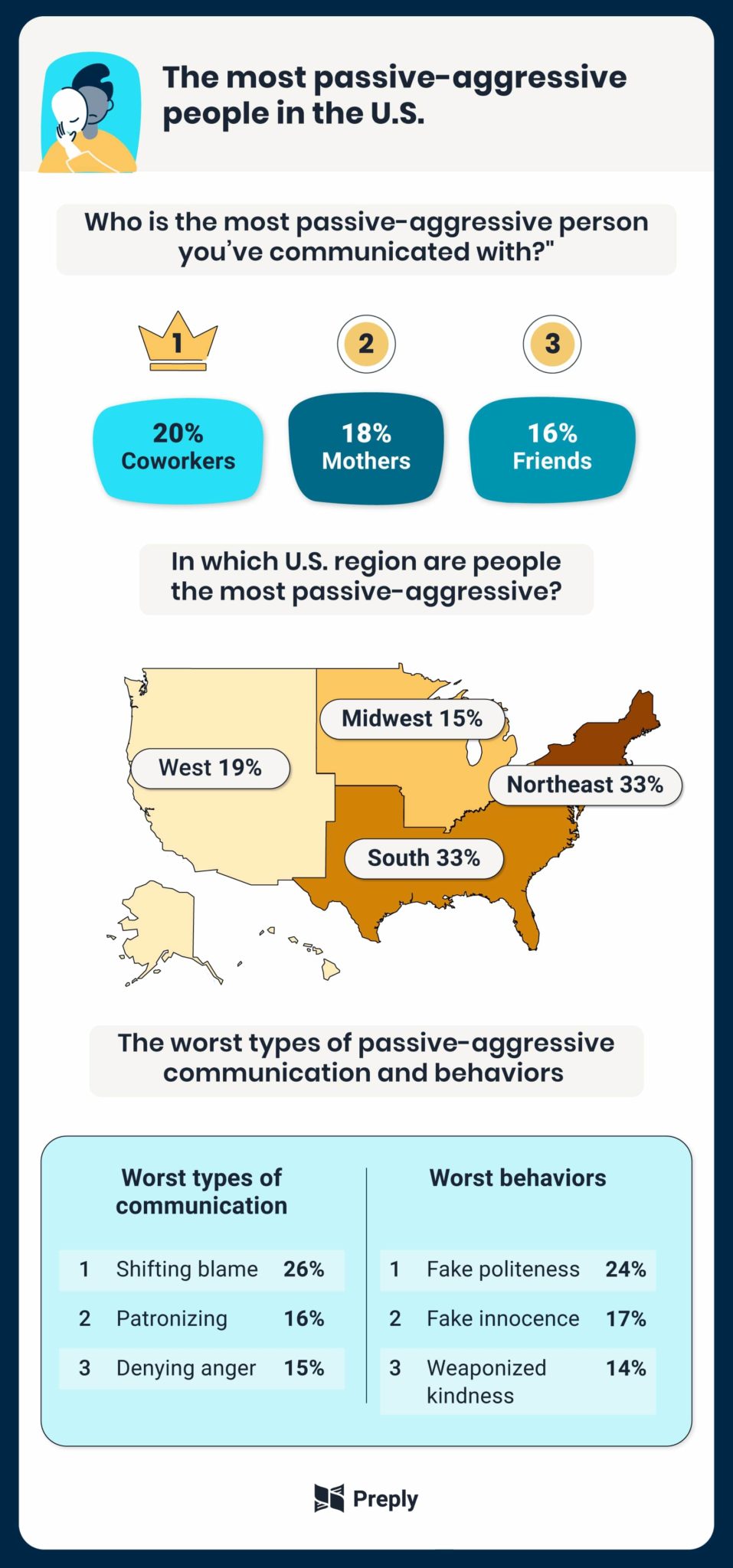Passive-aggressive behavior takes many forms, but it always refers to someone adopting indirect expressions of negative feelings instead of openly addressing them. These expressions can manifest verbally, such as your friend denying their anger, or through actions, such as avoidance. Unfortunately, passive aggression makes it difficult to communicate effectively or productively solve conflicts.
Recently, we surveyed more than 1,200 people about their experience with passive-aggressive communication and behaviors. We also asked them to rank the most passive-aggressive phrases in English, in settings like work, casual conversation, and online.
Key Findings
- The most passive-aggressive people, according to Americans, are their coworkers (20%), mothers (18%) and friends (16%).
- The worst passive-aggressive phrases you could say include “You’re too sensitive,” “Why are you getting so upset?” and “No offense, but…”
- 73% experience passive-aggressive communication at work; and 52% of those experience it at least weekly.
- At work, three of the most passive-aggressive phrases are “as you no doubt are aware…,” “for future reference” and “friendly reminder.”
- 69% think people are more passive-aggressive online than in person.
Who is the most passive-aggressive?
According to our survey, 99% of Americans have experienced someone being passive-aggressive. While you might easily identify other people acting in a passive-aggressive way, it can be harder to reflect on your own inability to discuss difficult feelings. Still, 82% admit to being passive-aggressive themselves.

The most passive-aggressive people, according to Americans, are their coworkers (20%), mothers (18%) and friends (16%). Looking at regions of the United States, the Northeast and South tie for the most passive-aggressive region (33%), although differences among regional communication styles and phrases can easily be viewed as being passive-aggressive without context. For example, the culture around politeness in the South might be viewed as fake politeness to someone from another region.
In fact, fake politeness is rated as the worst example of passive-aggressive behavior, according to 24% of respondents. Other behaviors ranking among the worst include fake or feigned innocence (17%) and weaponized kindness (14%). People use weaponized kindness by being overly kind as a manipulation tactic.
Overall, 83% of respondents indicated would end a relationship if the other party was being consistently passive-aggressive.
Read the full report here.











